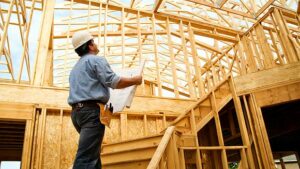If you plan to sell your home soon, you may not have considered all the challenging parts of this process. As if marketing your home wasn’t complicated enough, when a buyer is ready to purchase your home, this doesn’t mean you can immediately go to closing. While the closing process may be quick and easy for some, it can linger for others. One reason why closing on a home may take some time is the home inspection. This can be one of the most sensitive parts of the home-selling process. Deals can fall apart. Additionally, this can be especially devastating if you are buying and selling a home at the same time because it can slow up the process. So, what is a home inspection, and when and why is it necessary?

Home Inspection 101
So what exactly is a home inspection? It is an opportunity for an interested buyer to test whether costly parts of a house are in good condition before buying it. If parts of the house aren’t up to par, this doesn’t mean the house can’t sell. It just means that the lender won’t provide all the money that the seller is asking for the home. And if this happens, this means that the buyer will have to come up with more of their own money to purchase if they want the house. Otherwise, the deal will likely fall apart.
The inspection is performed by a skilled, licensed professional who will walk around the property observing various problems. The home inspection will take several hours to complete. Once the inspector is done, they will compile a report of all their findings. This report will usually be available within a few days after the inspection. Here are some of the critical areas of the home that an inspector may check:
- Roofs
- Plumbing
- Attics
- Fireplaces
- Foundations
- Electrical systems
- Heating and cooling systems
- Doors and Windows
- Kitchens
- Bathrooms
- Laundry rooms
While this is a long list of items to look for during a home inspection, it is not all-inclusive. There could be other items they check, such as whether DIY projects were installed up to code. They’ll even be hazardous issues that they may check for, including asbestos, lead, and mold. But usually, such tests aren’t part of a standard home inspection. If such an inspection is required, the buyer may request someone certified to perform these specialized inspections, which could cost an additional fee.
Although many home inspections seem comprehensive, they are actually a quick visual sweep of the house. If deeper issues are brewing behind the walls of a home, the home inspector will not notice such issues. For instance, if water leaks inside the wall create mold or electrical wiring problems that could be hazardous, they won’t be able to detect such issues.
When to Perform the Inspection in the Process
The home inspection typically occurs when a buyer decides to purchase a home from the seller. This is usually right after the buyer signs a purchase agreement and before the closing process. But an inspection doesn’t have to happen at all. It is something that is not required but is recommended since the buyer will inherit whatever problems in the house once they close on it. However, there are some loans, such as the FHA loan, that require an inspection as part of the approval process. If significant issues arise during the inspection and appraisal, government-backed lenders may put the loan on hold until the problems are resolved.
Why Is It Necessary?
Although a home inspection isn’t required, it is necessary. Particularly if the buyer doesn’t want to inherit a home with lots of costly problems. Of course, an inspection doesn’t guarantee that there won’t be expensive maintenance issues down the road. But it allows potential buyers to see where the problems lie and negotiate with the seller to help resolve these issues before the property exchanges hands.
It is also critical for a buyer to get a home inspection because even if they do acquire the home, an insurance company may not insure the house if there are major defects. In addition, signing a purchase agreement is a legally binding document. But if the inspection reveals that there are some major problems with the home, this could be a buyer’s way out of the contract without financial repercussions.
Who Is Responsible For a Home Inspection?
It is the responsibility of the buyer to request a home inspection. It is in their best interest to do so since whatever issues exist, they will inherit them once they purchase the home. The cost of an inspection can vary from state to state.
According to Home Advisor, the average cost range of a home inspection is between $281 and $402. Factors such as location, size, and type of home can drive the price of the inspection up or down. A buyer looking for a home inspector can find them by checking the InterNachi website or asking their agent. In addition, it is a good idea to check the BBB or review scores from Google, Yelp, and Facebook to get an idea of whether the home inspector is a good one.
Although it is ultimately the buyer’s responsibility to request and pay for the home inspection. There are times when the seller may decide to pay for or split theho costs with the buyer. Again, however, this is totally up to the seller.
Should You Fix Broken Items Before the Home Inspection
A seller isn’t required to perform a home inspection, and in some instances, a buyer probably won’t trust it. After all, a buyer may assume that the seller doesn’t have their best interest at heart and only wants to sell their property. So, in most cases, a seller getting an inspection may be futile.
However, if sellers don’t want to deal with delays in the buying process, it may be in their best interest to get a home inspection on their home. This will allow them to see all the significant problems and repair the home’s problems before they get to closing to prevent delays in the closing process.



